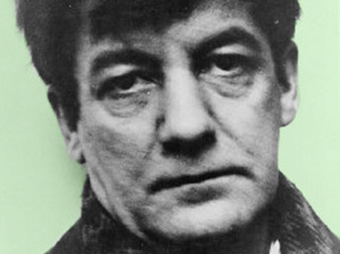
As a young writer, Sherwood Anderson believed the intersection between art and politics to be a dangerous one. “There is something terrible to me in…the art of writing being bent and twisted to serve the end of propaganda. Why should we as writers be primarily socialists or conservatives, or anarchists, or anything else…why can’t we leave politics and economics to the more lusty throated ones and run away, one by one, into the streets, the offices and the houses—looking at things—trying to write them down.” After witnessing the rise of Communism in Russia and the impoverishment of the Great Depression, Anderson came to relent his apolitical stance, as exemplified by the letter below.
Sunday [c. February 1932, Marion]
To Charles Bockler
I am writing to you, as you see, on stolen stationery. For a long time I have been thinking – of the shame in it that our communications have grown so thin—
Knowing well enough, Charles, that it is my own fault.
My own crowded life—my effort to get work done—doing so little.
There have been times when I might have come to see you. I did not like to ask you to come to Baltimore, perhaps just for a brief hour of talk.
Your presence is felt of course constantly in your work I have. There was the painting over the mantle in the living room—at Maurice’s house before he died. His son has it now…
…I’m becoming more and more a communist. I think it must be coming nearer—an inevitable thing. I guess this time is good for all of us. If you can, eventually, get that mail carrier’s job. It seems to me the right thing—taking letters and packages to people.
There should be hours every day out on roads—an inevitable contact with people. It should give you a kind of hold on something—on people—a countryside perhaps in the organization of which you have a part. After all we are pretty lucky—those of us who paint and write and make songs.
I’m pretty sure money is the great evil. You get it and it separates you—at once—from life.
We are all cramped, hurt, all the time, by what goes on.
How can art flourish. I’ll tell you, Charles, if the Russians pull it off—you’ll see—someday—a flowering there.
Think of a whole nation of people who can be sure of work—the old and the sick and the weary decently taken care of—
The land belonging to the state—the factories belonging to the state.
Here you are—you and John and a thousand others. How terribly houses, in which people live, need living pictures. The work you would all have to do would be inexhaustible.
It’s worth fighting for—the beginning of it. It’s worth any price. I guess all of us, in every part of the world, ought to pray, every day and ever night, for the success of Russia…for their keeping clean…making perhaps an example for the rest of us, someday.
John seems pretty healthy. He has made some friends of his own. He’s painting people more and more. He has one now—a little tough looking girl—in red—terrifically alive. It’s gorgeous I think.
I’m going on my long journey soon—first to California—to lecture—to get money for the trip to Russia. “Seeing,” as J.J. Lankes said—first the tin can of civilization of the American west coast, a flapper necking in a car, and then Russia—a strong woman in the throes of giving birth.
Love,
S.A.
From Sherwood Anderson: Selected Letters. Edited by Charles E. Modlin. University of Tennessee Press, 1984, p. 5-6.
FURTHER READING
Peruse back issues of The Sherwood Anderson Review, a publication of The Sherwood Anderson Foundation.
Read this transcript of a public literary forum in which William Faulkner describes Sherwood Anderson’s influence on him as a writer. Transcript provided by Faulkner at Virginia, University of Virginia Library.


